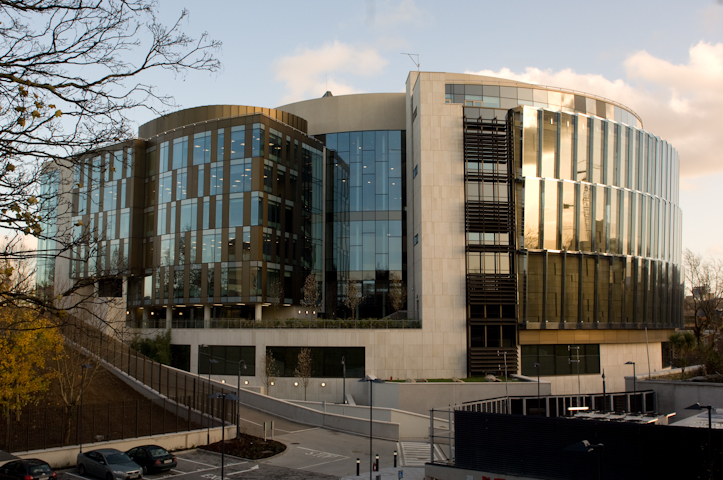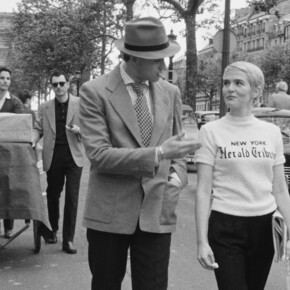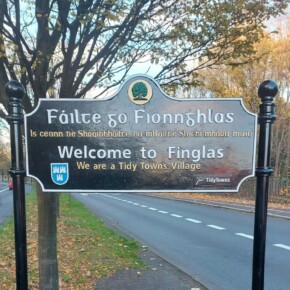Garda convicted for assaulting teen in Temple Bar
Dublin People 24 Jul 2025
By Claire Henry and Niamh O’Donoghue
A garda has been convicted of assaulting a teenager in Temple Bar four years ago following a trial at Dublin Circuit Criminal Court.
Lorcan Murphy (32) of Pearse Street Garda Station pleaded not guilty to two counts of assault causing harm under section 3 of the Non-Fatal Offences Against the Person Act, 1997.
The assaults on the then 17-year-old took place on Essex Street, Dublin 2 and Pearse Street Garda Station on June 1, 2021.
After four hours and 20 minutes of deliberation, the jury returned unanimous verdicts of guilty on both counts.
There was complete silence in the court after the jury delivered its verdict.
Judge Pauline Codd thanked the jurors for their service. She adjourned the matter for sentencing until November 3 next, in order to prepare a probation report and a victim impact statement. She remanded Murphy on continuing bail.
The evidence
“I was assaulted, I was tripped up supposedly, I fractured my skull,” the complainant told the court, adding that he had no recollection of events.
He said he’d been “drinking that day” and had also been “smoking weed”. He also said that he “could have been” carrying alcohol.
He went to meet his girlfriend in Temple Bar and said the last thing he remembered was walking past McDonald’s on Grafton Street.
He said “waking up in James’ Hospital” was the next thing he remembered. Someone in the hospital told him he was involved in an incident with the gardai.
He said he ran out of the hospital as he “freaked out” and thought nothing was wrong with him.
He woke up with a pain in his head, then went to the Mater Hospital before being transferred to Beaumont Hospital, where he stayed for five days.
He said he had headaches but has no issues with his memory.
The complainant stated that he had spoken to GSOC and provided them with two videos: one of himself on the ground, which someone else had recorded, and another of the garda approaching him, which he had taken himself.
He stated that he was not charged with any offences in relation to the events in Temple Bar that day.
The complainant agreed during cross-examination that he had no recollection of the incident, due to a head injury, but accepted that alcohol and cannabis could have contributed to his lack of memory.
Defence counsel asked the witness if he was someone who would obstruct the gardai, and he said that “sometimes if they came to me Ma’s house”.
When asked how he would obstruct the gardai, the complainant said, “Just resist arrest, but I wasn’t resisting arrest this time”.
He accepted that he was interviewed by GSOC, now Fiosru, but disagreed with a suggestion that he lied about his alcohol consumption.
The jury heard that the complainant has 44 previous convictions, and ten days after this alleged incident, he kicked and beat a person after they had withdrawn money from an ATM on O’Connell Street, then went through their pockets.
The complainant stated that he is a person who is respectful to others in society and has not engaged in anti-social behaviour since he was 15. When it was put to him that beating people up and robbing them in public is not respectful, he replied, “I’m paying for my mistakes”.
Other evidence
CCTV was shown to the court of two gardai, one of whom was Mr Murphy, on Essex Street, along with CCTV from Pearse Street Garda Station.
Darragh Fitzpatrick gave evidence that he had gone to Essex Street after hurling training to socialise with friends.
Asked if he saw any interaction between gardai and the complainant, he replied: “He seemed out of it, he didn’t seem to know what was going on.”
Mr Fitzpatrick said he saw “a bit of grabbing and handcuffs being placed on him [the complainant] and hearing something about a knife”.
When he heard the word “knife”, he took a step back. He said he saw a garda, identified as Mr Murphy, “spear tackle” the complainant.
Mr Fitzpatrick described the complainant going “limp and lifeless”, adding that he was “frozen” and was “initially very shocked”.
Defence counsel put to Mr Fitzpatrick that when he heard the word “knife”, he had the benefit of retreating. He replied, “I think I stood my ground,” but acknowledged that he may have taken a step back.
Aileen Fitzmaurice’s evidence was that she could not hear what was said between the gardai and the complainant, but thought there was an “aggressive demeanour”.
She said everything happened quite quickly; the complainant ended up face down on the ground. He was restrained by the gardai, and she then heard shouting, “Where is the knife?”
The gardaí first lifted the complainant to his feet, and then she described, “It was like they flipped him in a sudden manner and bashed his head off the ground.” She also described hearing a loud sound.
Under cross-examination, she confirmed she heard “where is the knife” said repeatedly, but she could not remember the exact sequence of events.
Eoghan Hickey’s evidence was that he heard one of the gardai saying “drop the knife” repeatedly. He described the complainant as being “limp” when he was brought to the garda van.
He agreed with defence counsel during cross-examination that he heard gardai shouting ‘where is the knife’ while the complainant was upright.
Dr Haroon Khan gave evidence of being called to Pearse Street Garda Station. He said he noted the complainant was intoxicated, tried to rouse him, but did not speak to him before having him transferred to the hospital.
Consultant Neurosurgeon Mr John Caird gave evidence that the complainant had a fracture to the skull and a contusion to the brain and has made an excellent recovery.
The defence case
Two statements from Mr Murphy were read to the jury. He went to assist a colleague, who was dealing with the complainant. He instructed the complainant to remove his hands from his pockets, then noted the young male tense up.
He stated that the complainant was again asked to remove his hands from his pockets, but he did not comply.
Mr Murphy said the complainant produced a glass bottle in such a way that he believed he was at risk of being struck with the bottle, which was then pushed out of the complainant’s hand.
The complainant was informed that he was being placed under arrest. He was placed on the ground, and another garda placed one handcuff on him. The complainant’s second hand was under him, and he was resisting arrest.
Mr Murphy said he managed to take hold of the complainant’s second hand, and he was handcuffed. He said that the complainant was spitting towards him.
Mr Murphy stood up and took the complainant to his feet. He told a crowd which had gathered to get back, but they didn’t. Mr Murphy said he felt unsafe both for himself and the arrested complainant.
He said he had his hand on the complainant’s back and felt him shift his weight, and Mr Murphy then performed a leg sweep. The side of the complainant’s body and head made contact with the ground.
Mr Murphy checked him visually and said that at no stage was he unconscious. He requested prisoner transport and that a doctor be called to Pearse Street Garda Station.
Closing speeches
Prosecuting counsel John Gallagher BL told the jury the prosecution’s case is that excessive force was used in the leg sweep, which resulted in the complainant’s head impacting the ground.
He submitted that the level of force used to bring the complainant to the ground after his initial arrest was not reasonable, inherently dangerous and likely to cause injury to the complainant.
He said the prosecution also says that pulling the complainant’s head using his hair in Pearse Street Garda Station, then applying force to his chest, is also an assault, which caused harm in the form of immediate pain.
Mr Justin McQuade, BL, defending, told jurors that the law requires them “to stand in the shoes of Garda Murphy and view the situation that unfolded through the circumstances he believed them to be”.
He said the force used was a leg sweep, and it was an “unfortunate secondary impact” when the complainant hit his head on the ground, adding that his client “did not have the luxury of picking a softer landing point”.
Mr McQuade suggested that if gardai are going to be criminalised for using force, they may be slower to use it in the future and that benefits no one.











